Introduction
Campus Bio-Medico University of Rome is a private higher education institution located in Rome, Italy. It was founded in 1991. The degrees it offers are recognized by the Italian education department. It is a member of the EU Socrates-Erasmus exchange program and maintains good cooperation and exchange relations with many universities in many countries.
Overview
Number of students: The specific number of students in the school has not been clearly found, but judging from its annual enrollment scale and professional settings, the number of students is relatively stable and gradually increasing to meet the talent training needs in different professional fields.
Number of faculty and staff: It has a considerable number of highly professional faculty and staff, including experienced professors, lecturers and scientific researchers, who have rich experience and professional knowledge in teaching, scientific research and clinical practice, and provide students with high-quality education and guidance.
History
The university was founded in 1991 by a group of entrepreneurs, originally aiming to provide high-quality education in the fields of medicine, engineering and psychology.
Founded in 1991.
School Strength
Faculty: The faculty has profound professional knowledge and rich teaching experience. Many teachers have not only achieved fruitful results in academic research, but also have practical experience in related industries. They can combine theory with practice to impart cutting-edge and practical knowledge and skills to students.
Scientific research level: The school attaches great importance to scientific research and actively invests a lot of resources in the development of scientific research projects. A series of important research results have been achieved in the fields of biomedical engineering, internal medicine and surgery, food and human nutrition science, and nursing. Some of the research results have a certain influence internationally and promoted the development of related disciplines.
International Cooperation: As the EU Socrates - As a member of the Erasmus exchange student program, the school has established extensive cooperative exchanges with many universities in many countries, such as St. Mary's University in London, UK, University of Ulm in Germany, and International University of Catalonia in Spain, providing students with abundant international exchange opportunities, such as exchange student programs and joint training programs, broadening students' international horizons and enhancing the school's international influence.
Institutional nature
Private university.
Educational philosophy
Focus on cultivating students' practical ability and innovative spirit, emphasizing personalized education, and committed to providing students with high-quality educational resources and a good learning environment, so that students can master solid professional knowledge while having the ability to solve practical problems and innovative thinking, and be fully prepared for future career development and social contribution.
Key laboratories and disciplines
Key laboratories: The school is equipped with advanced teaching facilities and scientific research laboratories, such as modern anatomy laboratories, simulation laboratories, and biomedical hospitals that work closely with the campus, providing students with a good practice and scientific research platform, helping students to apply theoretical knowledge to practical operations and improve students' practical ability and scientific research level.
Advantageous disciplines: Medicine, biomedical engineering, food and human nutrition science, nursing and other disciplines are the school's advantageous disciplines. Among them, the medical major offers a six-year medical and surgical degree program, and the nursing major has a three-year master's degree program. The curriculum of these majors is closely integrated with market demand and industry development trends, focusing on cultivating students' professional skills and comprehensive qualities, and graduates have strong competitiveness in the job market.
Department
The school has two main departments, including the School of Medicine and the School of Engineering, covering multiple professional courses from undergraduate to doctoral level, providing students with systematic professional education and in-depth research opportunities.
Ranking
The specific ranking of the school in the world comprehensive university rankings has not yet been found, but in the field of medicine and related majors, it has a certain reputation and influence in Italy and Europe with its high-quality education quality and scientific research results.
Expenses
Tuition fees: Taking the medical major as an example, the annual tuition fee for EU students is 20,000 euros, and the annual tuition fee for non-EU students is 25,000 euros. Tuition fees for other majors can be found on the school's official website.
Other expenses: The monthly living expenses of students are about 1000-1500 euros, including accommodation, food, transportation, etc. The school provides students with a variety of accommodation options, including on-campus apartments and off-campus rentals. On-campus apartments are well-equipped and convenient for living, but the cost is relatively high; off-campus rentals can choose different types of houses according to personal needs and economic conditions.
Campus Environment
Geographical location: Located in Rome, the capital of Italy, this historic city has rich cultural heritage and artistic resources, providing students with a strong cultural atmosphere and unique learning and living experience. At the same time, Rome, as the political, economic and cultural center of Italy, also provides students with broad internship and employment opportunities.
Teaching facilities: The campus has modern teaching facilities, such as advanced laboratories, multimedia classrooms, libraries, etc. The school's library has a rich collection of professional books and academic journals in multiple disciplines such as medicine, engineering, and psychology, providing strong support for students' learning and research.
Campus buildings: The campus architecture has a unique style, integrating modern and traditional elements, creating an elegant and comfortable learning and living environment. There are student dormitories, restaurants, gyms and other living facilities on campus to meet the daily needs of students.
-
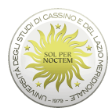
University of Cassino and Southern Lazio
-

University of Campania Luigi Vanvitelli
-
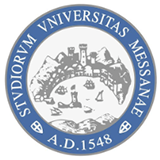
University of Messina
-
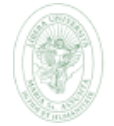
Libera Universita degli Studi Maria SS. Assunta di Roma (LUMSA)
-
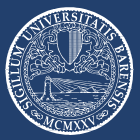
University of Bari Aldo Moro
-
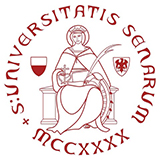
University of Siena
-
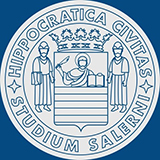
University of Salerno
-
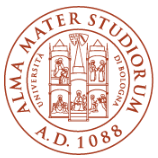
University of Bologna
-
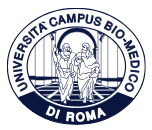
Campus Bio-Medico University of Rome
-
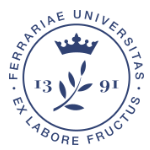
University of Ferrara
-

Mesoamerican University
-

Istmo University
-

Mariano Galvez University of Guatemala
-

Regional University of Guatemala
-

Galileo University
-

Francisco Marroquín University
-

Rafael Landívar University
-

University of the Valley of Guatemala
-

University of San Carlos of Guatemala
-

Technological Institute of Tlaxcala Plateau
-

Golfo University
-

Technological University of South Sonora
-

Technological University of Huejotzingo
-

Tizimín Institute of Technology
-

Chilpancingo Institute of Technology
